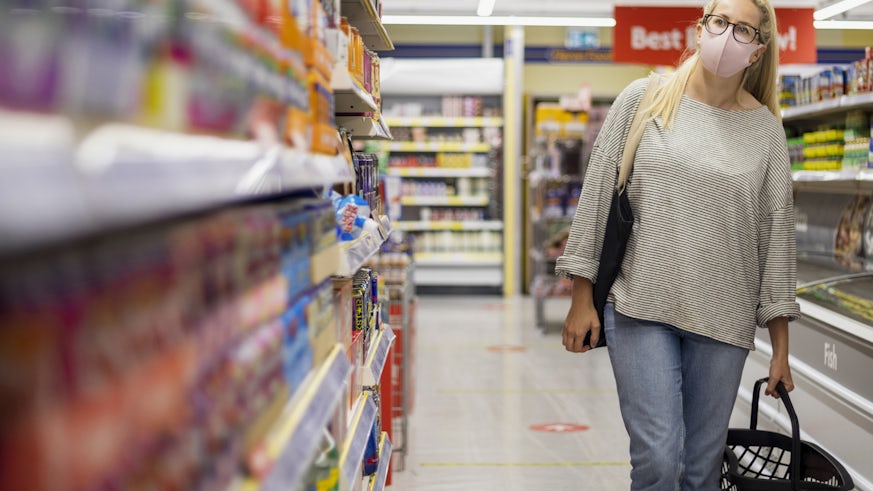Price of food may influence decision to buy alcohol, new UK research suggests
19 April 2021

People consume less alcohol as the price of food increases, suggesting this may influence the decision to buy it, a new study led by Cardiff University has found.
The research, which is the first to look at the link between alcohol consumption and cost of food, found a 1% increase in food price led to a 1% decrease in alcohol consumption.
The researchers suggest current policies to reduce harm from alcohol would be more effective if Britain moved to the Scandinavian approach where alcohol and food are sold by separate shops.
The findings are published in the Journal of Public Health.
Lead author Professor Simon Moore, Director of Cardiff University’s Violence and Alcohol Research Group and Co-Director of the Cardiff University Crime and Security Research Institute, said: “Our study suggests that the price of food does indeed influence whether a person buys – and then consumes – alcohol.
“Policies to minimise harm from alcohol might have more of an impact if we shifted to the Scandinavian model where alcohol is not sold in supermarkets or food shops.”
The study used data from the UK Biobank, which followed more than 500,000 people across the UK aged 40 to 73 to help understand the factors that influence healthy ageing.
The researchers analysed Biobank records on consumption of alcohol linked to location and the price of alcohol and food to look at how this influenced consumption.
They found a 1% increase in alcohol retail price meant a reduction of 0.25% in alcohol consumption. This was less of an impact than anticipated.
More significantly, they found a 1% increase in the price of food translated into a 1% decrease in alcohol consumption.
Professor Moore said the relationship between food price and alcohol consumption had not been accounted for in models informing minimum unit pricing policies in Wales and Scotland.
The policy – under which retailers have to charge at least 50p per unit – is in place in Wales and Scotland. Neither England nor Northern Ireland currently have plans to set a limit.
“If you want to use the price of alcohol to reduce harm, then our research suggests you should also consider the price of food,” said Professor Moore.
“Failure to account for this relationship might mean these policies are less effective than currently assumed.
“Previous studies in Finland and Canada have shown that minimum pricing led to people drinking less and reduced alcohol-related harm – but it’s important to point out that alcohol and food are sold separately from groceries in these countries.
“This evidence has been used to bring in minimum pricing in parts of the UK – but here you can go and buy a bottle of wine with your bread and Sunday paper from a supermarket or local shop. Increasing the cost of alcohol is regarded as an effective policy – but it’s only part of the picture. Our study strongly suggests the cost of food also plays a part.”
The work was funded by the Economic and Social Research Council, the Medical Research Council (MRC) and Alcohol Research UK and conducted using the MRC Dementias Platform UK (DPUK).
Analysis was carried out in the DPUK Data Portal, which gives researchers access to millions of curated health and lifestyle records from long-term studies of individuals.
DPUK’s Dr Sarah Bauermeister, one of the paper's authors, said: “This is an excellent example of the type of valuable insight that can be found within data from population studies – in this case, looked at in tandem with information from other sources.”
The study was also conducted in collaboration with Healthy High Density Cities Lab of Hong Kong University and used data from the UK Biobank Urban Morphometric Platform (UK BUMP) database.